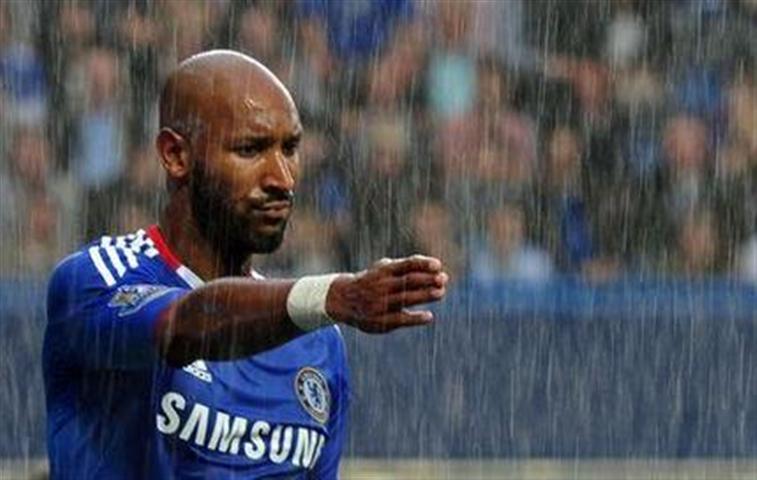Following on from the Chinese Super League resurgence part one feature, part two, a analysis piece recently published on goal.com, looks at how the signing of Nicolas Anelka blew the lid off Chinese football and what it means for the future of the sport in China.
Just a few months ago, predicted that the floodgates would open for more big-name players to come to play in China, after Guangzhou Evergrande completed the sensational signing of two-time Brazilian League Player of the Year Dario Conca for around $10 million from Fluminese.
At the time, the huge capture of an admittedly relatively unknown player was hardly noticed outside of Asia. But now Chelsea’s Nicolas Anelka, the English Premier League icon, soccer badboy, football nomad and former France international, has signed a reported record-breaking $300,000 per week deal with Shanghai Shenhua, and the rest of the world has finally caught up with the fact that the East is red hot. The Chinese Super League (Chinese Super League) has gone from being mentioned in embarrassed, hushed tones in the country itself, to the world’s most talked about football competition overnight.
The potential of Chinese football has never really been in doubt, but for a long time it looked as if the world’s biggest sport would forever remain in the doldrums in the world’s biggest country. China’s last achievement on the international stage was in 2004, when they lost out to Japan in the final of the Asian Cup on home soil. Since then the national team have lurched from one disaster to another, most recently last month when they crashed out of qualifying for the 2014 World Cup in Brazil from an easy preliminary group containing Singapore, Jordan and Iraq.
The domestic league, after being a massive hit when it was first launched in 1994, tanked spectacularly in the early 2000s after a series of scandals, which saw referees and players jailed for match-fixing. The spectre of corruption has hung over the Chinese Super League ever since, despite a relatively stable and scandal-free past few years for the top league, with the exception of the 2009 relegation of Chengdu Blades and Guangzhou for match-fixing in the second division several years earlier in an attempt to ensure promotion.
For many, the outlook for Chinese football looked grim. The authorities vowed to clean the game up, and following a thorough investigation, no less than the then-chairman of the Chinese Football Association himself, Nan Yong, found himself in prison at the end of 2010 for his part in corrupt goings-on.
For seasoned observers of the Chinese game, the incarceration of a senior figure at the highest level of the sport was not a huge surprise, and there has been a marked continuation of a slow but steady improvement in the general Chinese Super League situation over the past few years. Crowds had been edging up from an all-time low of around 10,500 in 2006 to a respectable 17,600 at the end of this season.
The quality of play was improving also, and the fans who managed to come to terms with the league’s image problems and support the clubs anyway, were very much hardcore football enthusiasts who lent Chinese Super League matches an edge in terms of atmosphere and revelry which some might say was not merited. But there was an overall realisation that the game had reached its lowest ebb and no matter how long the road to recovery was, the game was on the right path, at least in terms of developing the Chinese Super League as a worthy football competition.
Evergrande Real Estate Company recognised this and made a massive investment in Guangzhou FC, which reached a peak this summer with the aforementioned signing of Conca, resulting in 50,000 crowds flocking to watch the club as they clinched their maiden championship this year.
As predicted, this investment has been the catalyst for investment to flood into the rest of the league. Just a few weeks ago, the thought of Anelka turning out for Shanghai Shenhua seemed ridiculous given the club’s financial problems last season. But the money is now flowing in, reportedly through a city government-owned subsidiary with a stake in the club, and now Anelka will find himself being given a hero’s welcome at Hongkou Stadium next season.
There is no doubt more big names are on the way to the Chinese Super League; Didier Drogba and Ronaldinho are among those who have been mentioned. Such high profile players will, in the short term, be of huge benefit to the Chinese league in terms of raising its profile and overcoming its credibility problems inherited from a scandal-ridden history.
In particular, the city of Shanghai, so long seen as the centre of China’s rise as a global economic giant, prides itself on being at the forefront of all manner of trends and developments in the country.
It is said that social trends happen in Shanghai first, then the rest of China takes a couple of years to catch up. The same cannot be said of football: Guangzhou started the new financial revolution in the Chinese Super League, but Shanghai has only waited a few months before stealing the thunder from their Cantonese cousins with the jaw-dropping signing of a player who, despite his 32 years, is still more than capable of turning out at the highest level of the game for a few seasons yet. And as we go forward into the rest of the Chinese Super League close-season, no city will want to be left out, and other major Chinese Super League clubs such as Beijing Guoan, Shandong Luneng, Dalian Shide and Tianjin Teda will likely enter the big-name signings game very soon.
Even newly-promoted sides, Guangzhou Fuli and Dalian Aerbin, have attracted serious investment as clubs prepare to scramble over those players willing to play in a league which, whilst being entertaining, of course lacks the technical panache of the top European competitions.
In the next couple of years, it is expected attendances at Chinese Super League games will rise significantly and the influx of cash will continue to fuel the arrival of big stars for the foreseeable future. Most of the top names will create a positive impact on and off the pitch, some will inevitably fail to settle and return home after half a season, others will become heroes and ambassadors for the game in China.
Which one of those categories Anelka falls into remains to be seen, but if the enthusiasm and passion of Shanghai Shenhua’s infamous Blue Devils ultras group is anything to go by, their hero worship of the awkward Frenchman will appeal to his sensibility, as will the cosmopolitan lifestyle of one of Asia’s most fashionable cities.
thinks Anelka will not regret his decision to play in Shanghai. The rest of Chinese football must surely hope the coming upsurge in popularity for the domestic game inspires a new generation of Chinese talent to finally banish the country’s footballing demons once and for all.

